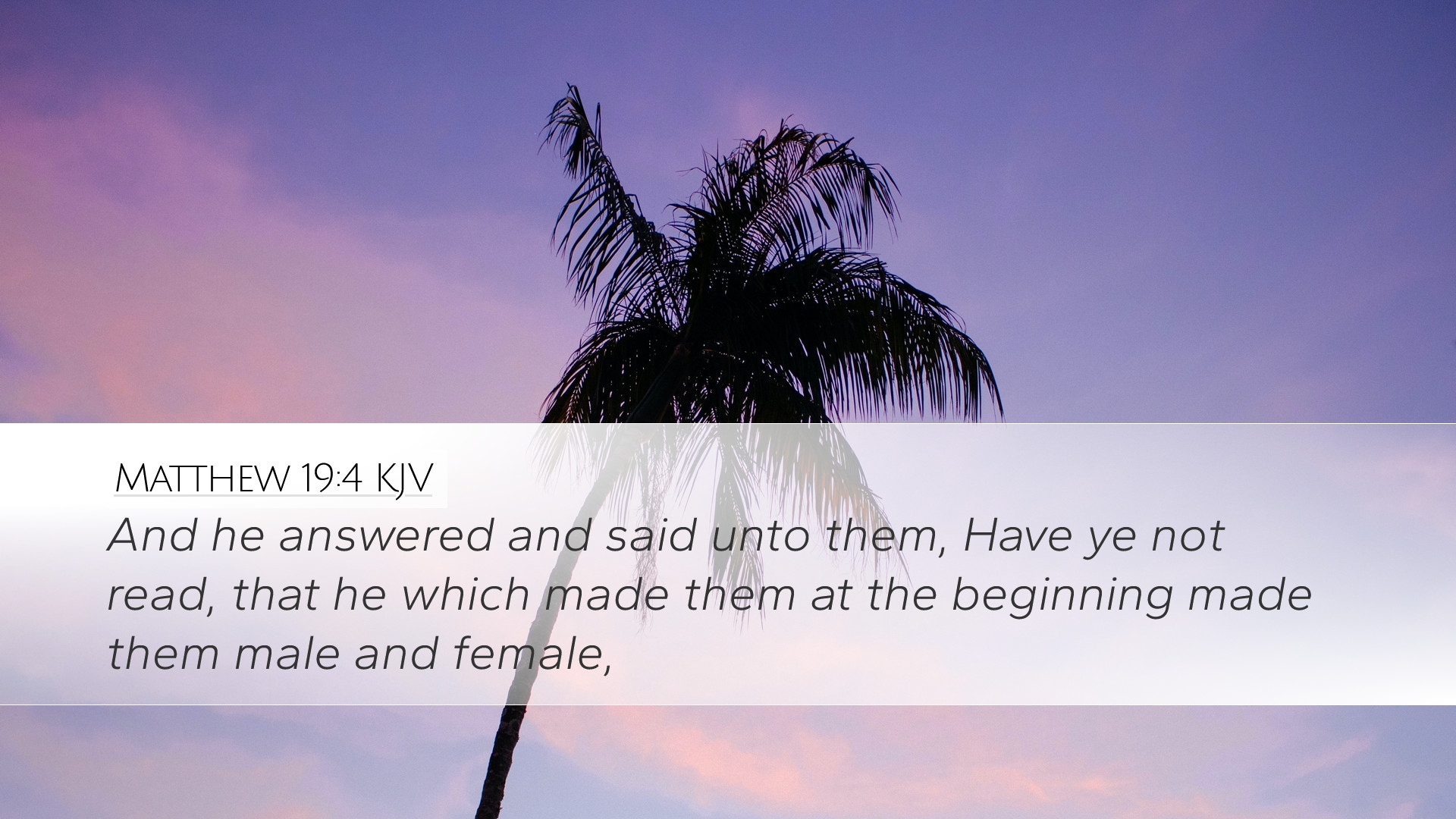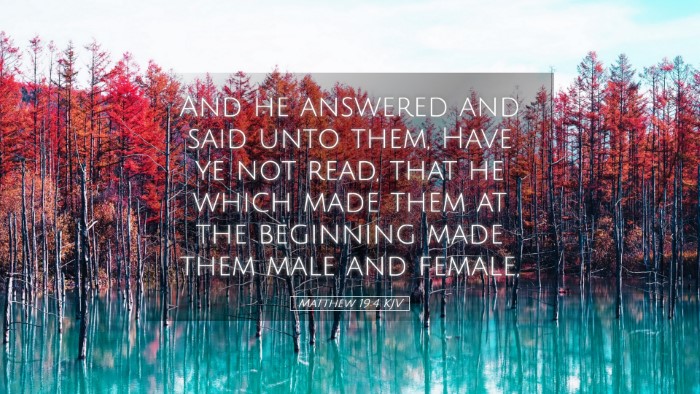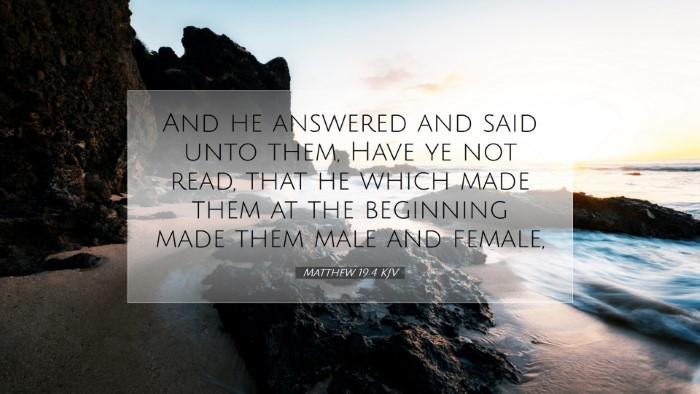Commentary on Matthew 19:4
Verse: Matthew 19:4 - "And he answered and said unto them, Have ye not read, that he which made them at the beginning made them male and female?"
Introduction
This verse captures a pivotal moment in Jesus' teaching regarding marriage and human relationships. With it, He reaffirms the divine intention behind creation and highlights the sanctity of the marriage covenant. Insights from renowned public domain commentators like Matthew Henry, Albert Barnes, and Adam Clarke enrich our understanding of this profound statement.
Contextual Background
In this passage, Jesus is responding to the Pharisees who questioned Him about divorce. Their inquiries reflected a broader Jewish dialogue concerning the law of Moses and its interpretation. The question aimed to trap Jesus into a controversial stance regarding marriage, yet He deftly redirected them to the Genesis account of creation.
Insights from Matthew Henry
Matthew Henry emphasizes the importance of referring back to the original creation narrative. He notes that Jesus' query, "Have ye not read," underscores that familiarity with Scripture must precede discussions on moral and ethical issues.
- The Creation Ordinance: Henry points out that Jesus highlights a foundational truth: God created humanity intentionally, designating a clear distinction between male and female. This distinction is pivotal in understanding the roles and responsibilities within the marriage union.
- The Nature of Marriage: Henry emphasizes that marriage is not merely a societal contract but a divinely ordained institution. By affirming the original creation, Jesus reinstates the sanctity and permanence of marriage, opposing the ease with which divorce was being justified by the Pharisees.
Insights from Albert Barnes
Albert Barnes provides a theological exposition on the implications of this verse. He underscores that Jesus refers to the beginning of creation to illustrate God's original intentions for human relationships.
- Affirmation of Gender Roles: Barnes remarks on the significance of being "male and female." This not only establishes a divine order but highlights the necessity of both genders working in harmony, reflecting the image of God in the triune nature of the Creator.
- Enduring Principle of Marriage: He expounds on the permanence of the marital bond, arguing that Jesus’ reference to Genesis reaffirms that God's design is for marriage to be lifelong. This was a radical statement against the backdrop of contemporary practices that allowed for easy divorce.
Insights from Adam Clarke
Adam Clarke offers a historical perspective, giving attention to the cultural interpretations of Scripture at the time of Christ. His insights help illuminate the enormity of Jesus' assertion in a first-century context.
- Cultural Context of Marriage: Clarke points out that during Jesus’ time, Jewish law had permitted divorce under various circumstances, yet Jesus offers a return to the sacredness of the marriage covenant, transcending cultural norms.
- Theology of Creation: Clarke highlights the significance of "the beginning" as a time of divine intention. He argues that acknowledging God's authorship in creation should compel humanity to honor His designs regarding human relationships and sexuality.
Theological Implications
This verse has far-reaching implications for contemporary discussions about marriage, gender roles, and the authority of Scripture.
- Affirmation of Biblical Authority: The reference to Genesis invites believers to reevaluate their understanding of marriage and divorce through the lens of divine revelation, rather than societal pressures or changing norms.
- Call to Holiness: The call toward a biblical view of marriage serves as an exhortation to Christians to reflect on their commitments and strive for holiness in relationships, echoing the call of Jesus back to God's original design.
- Gender Distinction: The acknowledgment of male and female as distinct yet complementary reflects a theological framework that champions both equality and distinctiveness within the divine order.
Conclusion
Matthew 19:4 serves as a powerful reminder of God’s intricate design for humanity and relationships. As we study this verse through the lenses of Henry, Barnes, and Clarke, we are called back to the beauty and sanctity of marriage as ordained by God. This understanding is crucial not only for personal reflection but also for pastoral ministry and biblical scholarship.
In an era where the institution of marriage is frequently challenged, the teachings of Christ in this verse provide a timeless truth for believers seeking to navigate relationships in harmony with God's ultimate purpose.


